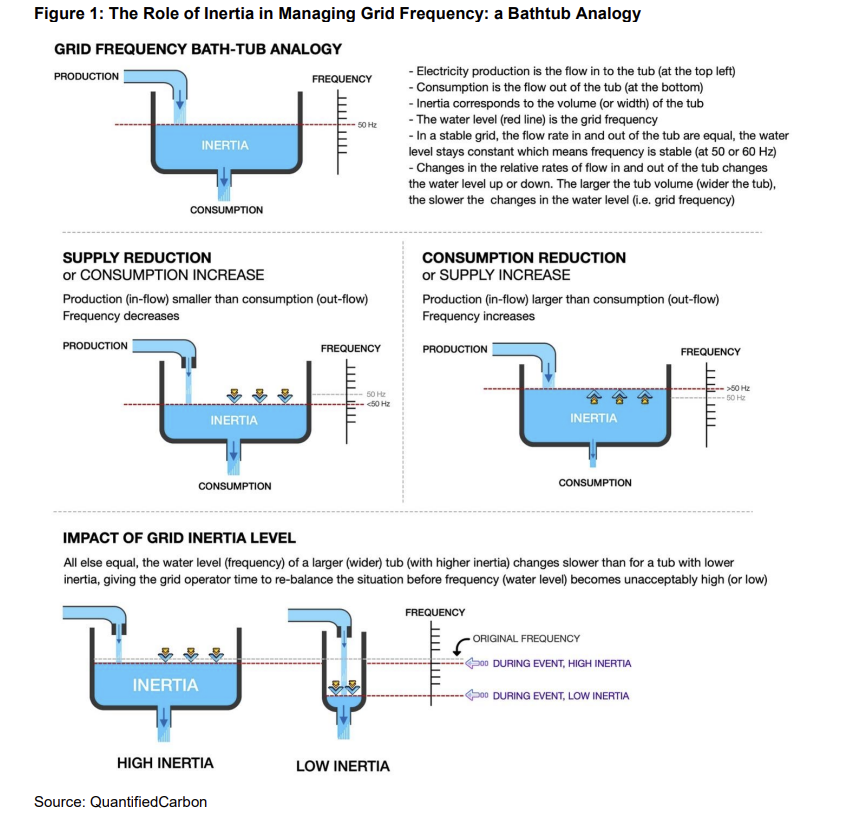September 13, 2023

New technologies and procedures are emerging to replace some of services that turbine inertia used to provide. For example, electronic devices that can help stabilize grid voltage and frequency. But reliability remains the watchword for modern grids. And how these new electronic systems will perform at scale is still hard to fathom. Inertia remains essential. Around the world some grid operators are now beginning to grapple with the consequences of declining inertia. In this Energy Insight, we look at this issue with a focus on the experiences of grid operators in Britain as well as in the Nordic regional group. The British grid is of special note because it has seen the most rapid shift to a more decentralized grid and toward much greater roles for intermittent renewable power (mainly wind, but solar as well). In the case of the United Kingdom, policies that decreased the use of generators and favored intermittent renewables pushed the grid in the direction of declining inertia. The loss of inertia was a somewhat unexpected and completely unintended byproduct of those market designs and policies.
If you would like more information on our project, please email us or get in touch using our LinkedIn page.